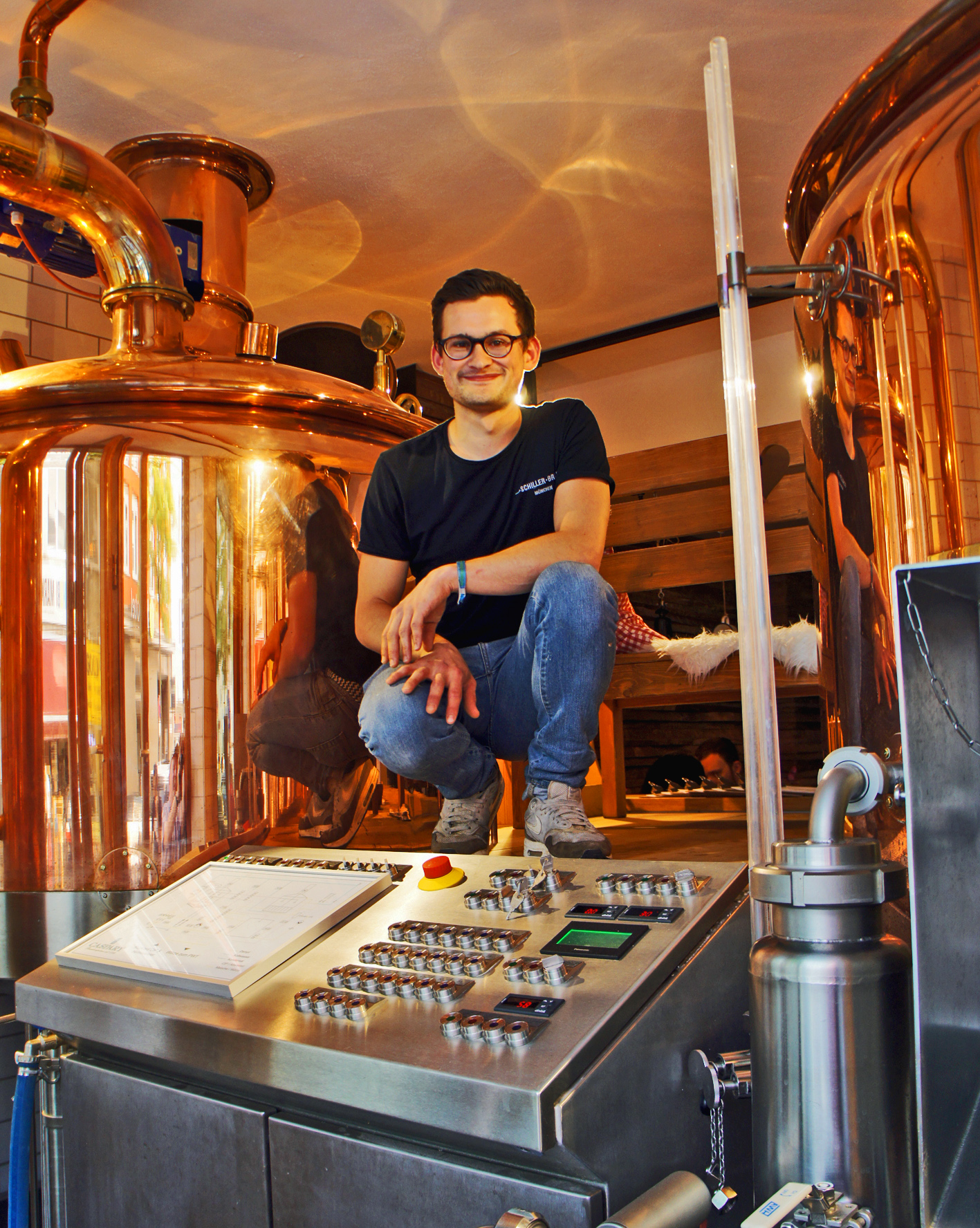
Should you wish to know the differences between the craft beer scenes in London and Munich, Burchard Stock is a good man to ask. For two years he was a brewer with the pub brewery chain Brewhouse & Kitchen in Britain’s capital, ending up in charge of the Islington branch, close by the Angel: indeed, his pictures are still all over the venue’s website. Then in May this year he moved back to Bavaria to take charge of the Schiller Bräu operation, a “house brewery” in a restaurant on the ground floor of a modern hotel a short distance from Munich’s central station.
The Islington Brewhouse & Kitchen will sell you mac ’n’ cheese, beetroot burger in a vegan bun, or spicy Cambodian curry, with a hoppy American pale ale, a stout or a session bitter, all brewed on the spot. At Schiller Bräu, despite the modern interior, all tiles and distressed wood, it’s “traditional favourite dishes inspired by grandma’s kitchen”, and traditional beers inspired by grandpa’s Brauarei (sic), that is, “Schweinerei”, pork schnitzel covered in pretzel crumbs; “Bleede Kua”, grilled fillet of veal, and “Sauer macht lustig”, sour vinegar dumplings with onions, gherkins and radish, with, to drink, a selection of beers from the beautifully shiny brewkit at the front of the restaurant so solidly Bavarian, like the food, it will make any lederhosen-clad boarisch Mo fling himself into a chorus of “Ein Prosit!” immediately: Helles, Dunkel and Weißbier. And maybe a Maibock if it’s the right time of year. Don’t dream of offering anything that isn’t Reinheitsgebot-compliant, or they’ll have you outside and strung up on a lamp-post before you can say “Oans! Zwoa! Drei!”
Despite the conservatism of the drinkers in Freistaat Bayern, there are, in fact, more than twice as many “start-up” breweries in its borders, at 220-plus, than in any other single Land in Germany. At the same time it is the only state in the federal republic where the “traditional,” established breweries, of which there were 424 as of August last year, still outnumber the new ones: indeed, Bavaria has two thirds of all Germany’s old-established breweries, but only just over a quarter of the new ones (and just over 16 per cent of the total population). But Munich, which if it followed even the Bavarian average, ought to have around 25 new breweries, falls far short: nobody I spoke to seemed to known how many small breweries there are in the city, but it’s a handful, at best. The Big Four Munich breweries (counting the partly Heineken-owned Paulaner and Hacker Pschorr and the AB Inbev-owned Löwenbräu and Spaten-Franziskaner as one each) dominate, and one, the still independent Augustinerbräu, dominates most of all. For a city that boasts of its beerhalls and its world-famous 16-day-long celebration of beer, the Oktoberfest, the choice of beer, and beer styles, is more limited than in the average British corner shop.
Burchard, a mid-20s look-alike (he will hate me for saying this) for Harry Potter without the scar, says: ” A lot of people think Munich is the capital of beer. I think there was a time when that was definitely true. But what we have nowadays in Munich is basically four or five big old brands, while if you go to Berlin, you know, you have 50 small breweries and one big one, or Hamburg, which has such a variety of small breweries. There are plenty of people who say, ‘If you want to start a business that’s not going to succeed, start a brewery in Munich.’ I was impressed when I came here that this brewery was so young and doing so well. Everyone here drinks Augustiner: I think it’s 55 per cent of the Munich beer market, which is huge, and then another 40 per cent goes to breweries that are just copying Augustiner, so there’s not much left for others to claim.”
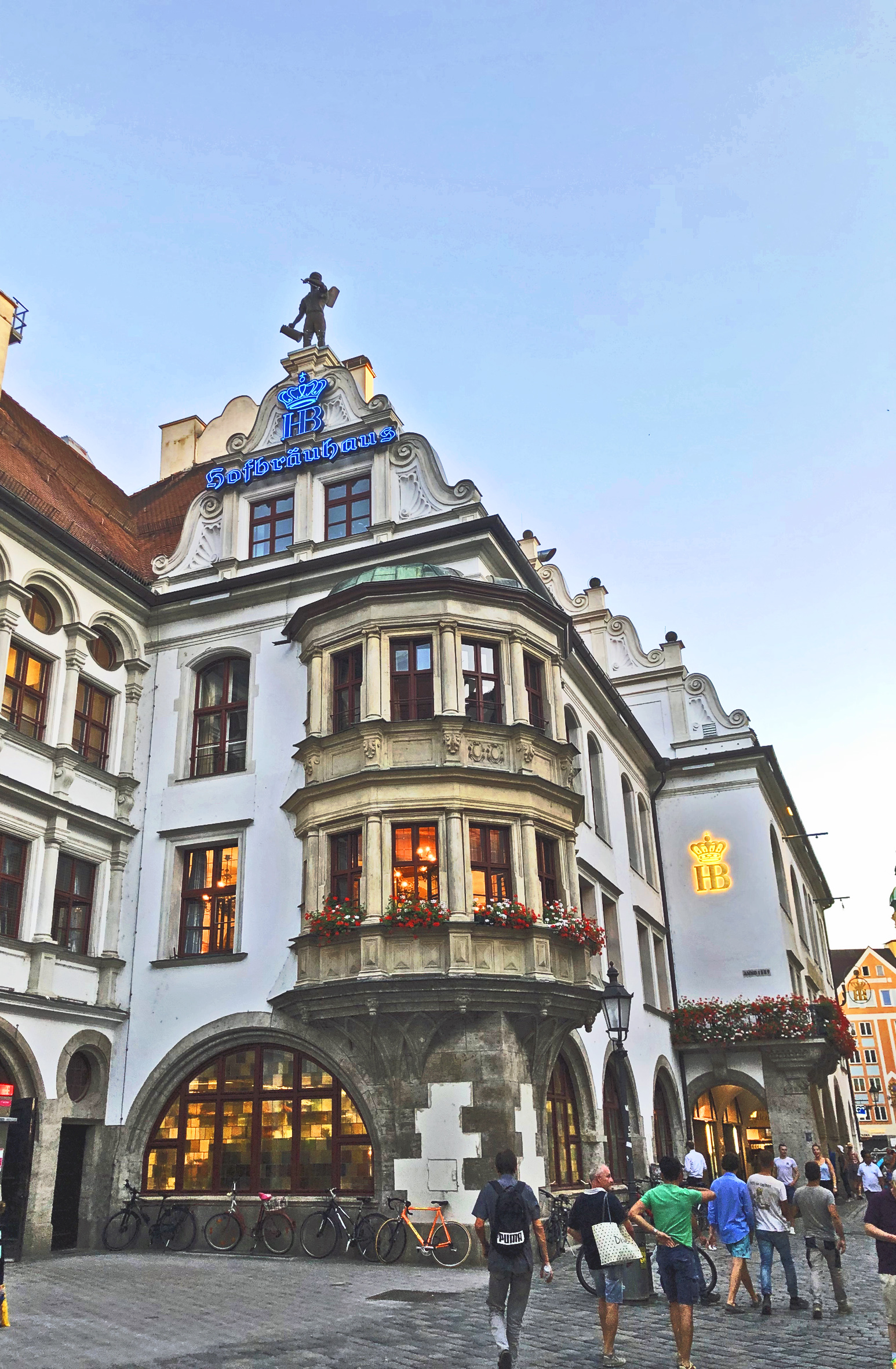
The Schiller Bräu brewery, on Schillerstraße, now two years old, is one of several “house breweries” based in hotels run by MK Hotels, which itself is owned by the Lindner Group, a large German construction company specialising in facades and interiors (its works include the Gherkin, 70 St Mary Axe, in London). Burchard says: “It’s a family-owned business, and at the beginning of this century the founder said, ‘I want to set up a hotel business.’ So he started a small hotel chain – I think we’re about 12 or 13 right now – and with the hotel group he also fulfilled one of his oldest dreams, which is owning his own brewery. With the first hotel they built they put in a brewery, in Mariakirchen, in Lower Bavaria, and there are now four hotels with breweries in.
“The beers vary depending on the location: in Mariakirchen, for example, they’re very, very, very traditional, because the Bavarians down there just drink the local equivalent of mild. Moving up to Munich, we’re still traditional, but from time to time we do a little bit more of a tweak. The more northern you go, though, the crazier it gets: In Remscheid, [near Dusseldorf], one of the other production sites, he’s doing quite similar stuff to what the people in London are doing, so watermelon ale and stuff like that – he’s into the craft beer stuff. But It depends on the people around you and who drinks your beer. The Bavarians are very conservative.”
“Here we have four standard beers: Helles lager, dark lager, wheat beer, and a lower-abv Helles, 2.5 per cent alcohol. Every month there’s a new seasonal coming out, so for this month it’s a Pilsener: this is where the brewer gets to vary things.” The local cut up the last time Burchard brewed a pils, though: they don’t like ’em too hoppy in Bavaria, unlike in Northern Germany. “This is how all the breweries in the group work: you have your core beers, and then every month you get a little special treat. After August we are going to have a Märzen, for the Oktoberfest, that will stay on for two months, and then we’re going to have a dark wheat beer, a dark doppelbock, a dark bock, a rye wheat beer, a Märzen again, a Maibock – pretty much a standard Bavarian selection. It’s just slightly different from what I was brewing in Islington,” he says, smiling. “We had real ales, we had a session lager, a really fruity American pale ale, oatmeal stout, Saison, witbier, sour biers, all the usual craft beer range.”
Burchard was born near Bonn, grew up in Berlin, and spent a couple of years in Munich. He started out wanting to study psychology, or social work, and applied to various universities in the south and west of Germany. “My mother told me that someone was studying social work at Weihenstephan, just outside Munich, so I looked it up on the internet, couldn’t find that course, but saw the brewmaster diploma course, and thought, ‘that looks really fun,’ so I applied for it almost as a joke.
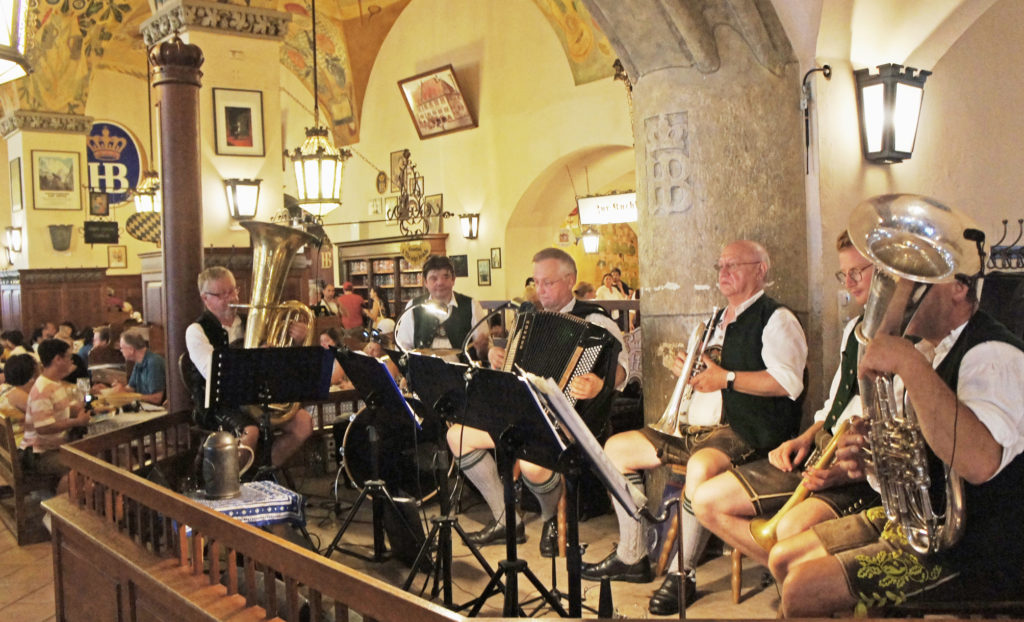
“They gave me an offer of a place, so I thought I had better take a serious look at the course. It involved a one-year internship before the course, and I really liked the idea of that – earning money so I didn’t have to live off my parents’ money, and if I didn’t like the job, at the end of the year I could move on and go and study psychology after all. I was 18 years old, what did I have to lose?”
Before he could take up the course, Burchard did an internship at Oettinger, Germany’s biggest brewer, and “really really like the subject it, really enjoyed it, enjoyed my time a lot. I moved on to Munich to study at Weihenstephan, studied for three semesters and with every semester, for me, the fun was going out of the subject. I looked at it and I said, ‘If you finish that course and you become a Diplom Braumeister, as we call it in Germany, then in the end of the day you end up in a laboratory, overseeing everyone who is doing the brewing stuff, but basically having no hands on the beer any more.’ If I wanted to do that I could have done a business degree, and apply to a big brewery for a management post, or study microbiology and gone into a laboratory. That was not what I was looking for, but in the very beginning, when I applied, I had no idea how the business worked.
“So I quit the university at that point, went back to the beginning, did my apprenticeship in a very small brewery, Eschenbräu in Berlin, a really good brewery, I recommend anyone to go there. I finished my apprenticeship really quite quickly – in general you do a three-year apprenticeship, but since I had quite a bit of pre-knowledge from my studies I could finish it in a year and ten months, something like that. I came back to Munich and worked half a year for Paulaner, where I made my choice that I would never work in a big brewery again, because it’s, excuse my French, fucking boring, pushing buttons and observing and controlling, the practical work is missing. That’s what I really like in this job.
“So then I moved over to London for two years to work in Brewhouse and Kitchen, became head brewer in one of their branches, in Islington, and then came back to Munich and started here.”
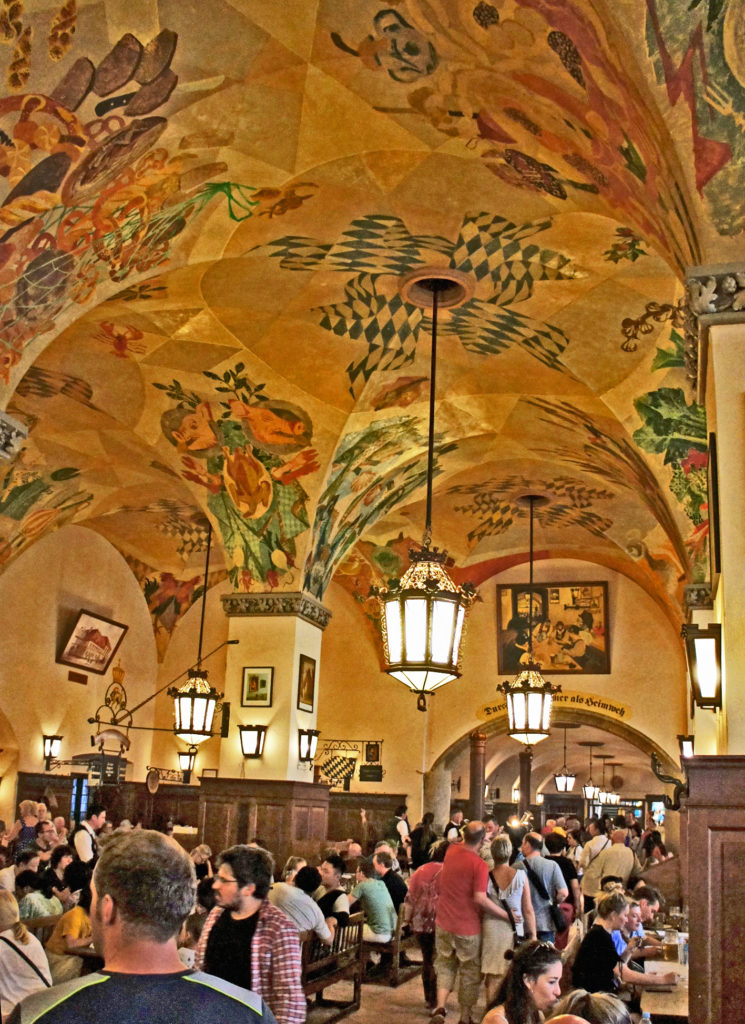
The brewing kit at Schiller Bräu consists of a copper-clad mash tun/copper, lauter tun and whirlpool, plus three fermentation vessels and seven conditioning tanks down in the hotel’s cellars, where the beer is also stored in tanks when ready for serving. All the equipment was made by the highly regarded small-brewery specialists Caspary in the village of Hart, near Chieming, in the far south-east corner of Bavaria, who recently supplied the London Fields brewery with a 15-hectolitre brewhouse. Schiller Bräu’s kit cost €400,000, vastly more than the cost of the kit at Brewhouse and Kitchen, and it is considerably more sophisticated as well. While the kit in London was set up for single-step infusion mashing, the Schillerbrau kit will do multi-stage decoction as required, depending on the style of beer, though Burchard generally does what the Germans call the Hochkurz mash, literally “high-short”, where a portion of the mash, usually one third, is boiled for five minutes and then blended back in. The Helles stays in the conditioning tanks for at least a month, the dark lager and pils for the same time, the Weissbier “I think is good after two weeks, but usually it has three weeks, because the tank it’s served from isn’t empty yet.”
Burchard brews twice a week, in 900-litre batches, using malt from the Bavarian maltster Weyerman, while most of the hops are from the Hallertau, the yeast from Augustiner, 20 litres at a time, replaced every two to three weeks, and the water straight from the tap, with acidulated malt used if he ever needs to lower the pH. Almost all the beer is sold on draught, unfiltered and unpasteurised, with 96 or 97 per cent of the beer drunk on site, and only a very small amount put in bottles, growlers or mini-kegs for taking home. No other brewery’s beers are sold in the restaurant, apart from Schneider’s alcohol-free Weißbier.
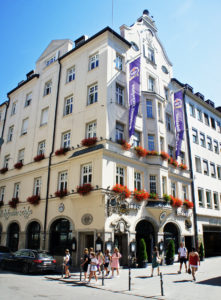
The business, as it should be, is booming: ” It’s hard to find a table here if you don’t have a reservation. Around Schillerstraße there are a lot of hotels and you get a lot of tourists here, but I wouldn’t say tourists are our main customer group. We have quite a lot of regulars, who are typical Munich Bavarians, who have lived here a long time, they just want a regular pub, so they come together every week, sit down and have something to eat and drink a few beers.” Those beers are solid, down-the-line interpretations of Bavarian styles, not, perhaps, worth making a special journey for, but if you’re in Munich, definitely worth looking up.

And what about Munich itself as a beer tourism destination? It’s a tricky call, to be frank. You can go elsewhere in Bavaria and find better Helles, better Dunkel, and so on than anything the city’s big breweries offer. The Oktoberfest is a joke: six million people all drinking basically exactly the same beer. But the beer halls of Munich ARE worth seeing, and experiencing, for the architecture and the atmosphere, and you can watch elderly Bavarians gathered at the Stammtisch enjoying what beer should be all about – convivial chat. So no, you probably don’t know beer well enough until you’ve downed a Dunkel in the Hofbräuhaus. Even if it is full of Japanese tourists taking selfies with the brass band. And if you do go there, you’ll also be able to buy an HB-branded blue spotted handkerchief in the gift shop: that beats a T-shirt any day.
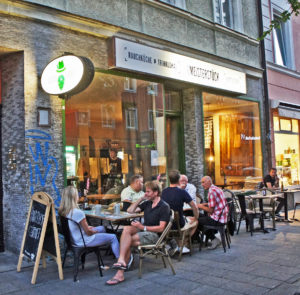
Should you be looking for something more beerily adventurous in Munich, let me point you to a place Burchard tipped his hat at for me: Meisterstück, a bar/restaurant in Weißenburger Straße, in the upmarket suburb of Haidhausen. Behind it is the Hopfenhäcker brewery, one of those rare Munich micros, producing beers you certainly won’t find at Oktoberfest – Indian Pale Lager, for example, or a witbier called Kill Bill (the brewery was originally called Hopfenhacker, “Hop Hackers”, without the umlaut on the A, but Pschorr enough a larger Munich brewery objected, so the name had to be typographically tweaked). Meisterstück sells more than just Hopfenhäcker beers, however, with eight or so draught beers, and 100-plus different bottles available to drink on the spot or take away. I only had time for one as I sat in the little “beer garden” behind the restaurant, which was not actually a “new small craft” brewery, but a dark, sweet and malty Kellerbier from the North Bavarian family brewery Zirndorfer (and, er, not actually that great, alas …).
Still, the next day I just had time, before leaving for Munich airport (which has its own brewery, natürlich) for a swift and delicious Dunkelweiß in the very lovely Schneider Bräuhaus in the heart of the city, and to regret that I had only arranged for a day to explore a tiny fraction of Munich’s attractions. Aufwiedersehen, München – I hope to be back.
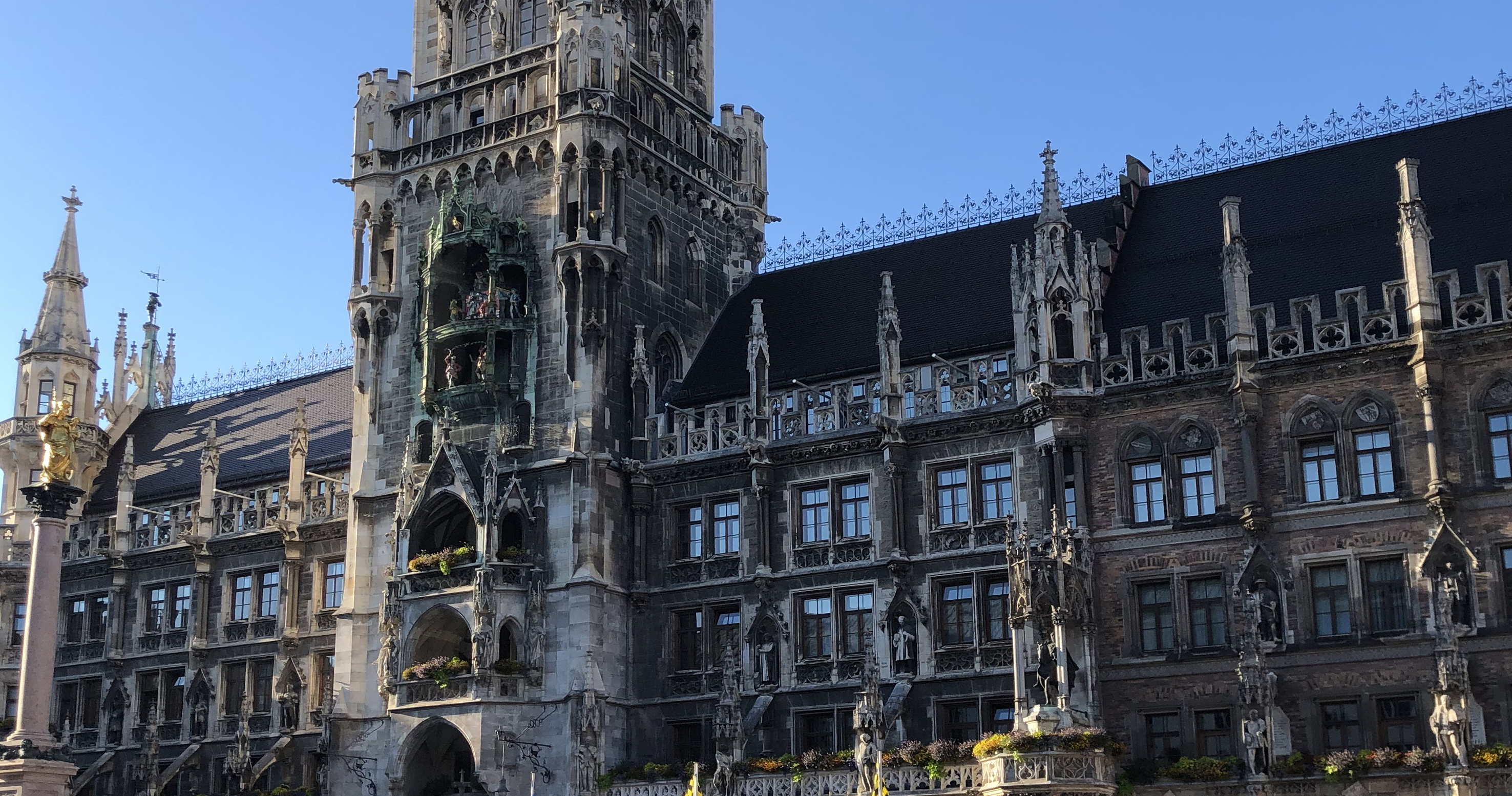

The Camba Bavaria Tap-House is another pub that offers a welcome change of beer scene in Munich.
The brewery in Munich airport is one of the reasons I decided to have my layover from Hannover to DC there rather than Frankfurt when I am in central Europe this October.
I have to admit that I would sooner drink litre after litre of a beautifully brewed Bavarian helles rather whatever hopbomination is coming out of the fetid imaginations of many an “innovative” craft brewer these days.
Regarding Bavarian helles beers, I fully concur.
The now rather useless term ‘craft’ (as used by self-appointed ‘craft’ brewers, of any operational size) distracts from the point that great experience, expertise and talent is required to brew great beer on any scale (and great beer certainly doesn’t need to be innovative or use “edgy” novelty ingredients to be great). To brew great beer in very large volumes, and to do so with consistency of quality and flavour, taking into account inevitable biological/chemical changes to the characteristics hop or malt year to year – that’s a real craft!
Great piece, great insights! Erm… “Indian” Pale Lager? Don’t you start with that rubbish too please…
Mention of any beer style on this blog does not constitute approval …